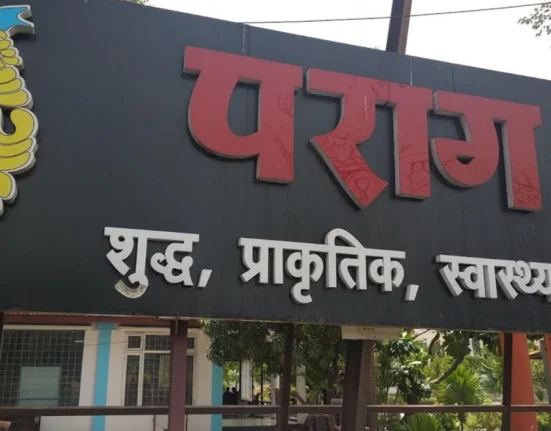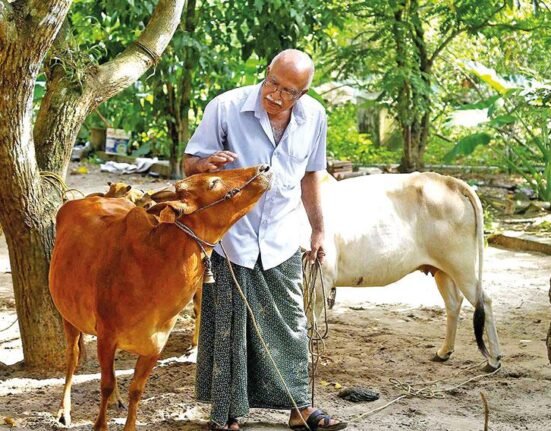This piece is not about the various outlays and announcements of proposed new schemes in this Budget. It’s actually about what the Budget completely missed doing, and what it could have done in an ideal world. In my view, there are four Big Misses of this Budget.
Another Union Budget has come and gone and the farmers of India continue to wait for a transformative policy breakthrough. Their vigil is akin to the yearly anxious wait for the first signs of the monsoon, as summer grinds down over the Indian subcontinent. While the monsoon usually delivers, though often not on time and with as much bounty as farmers would hope for, Budgets seem to appear and vanish as distant clouds which shower no blessings on the parched policy landscape. Even as we lounge in the cool shade of the umbrella of food security achieved through decades of wise policy making and the hard work of our scientists, administrators and farmers, somehow the future of agriculture looks less bright than some of its past achievements.
This piece is not about the various outlays and announcements of proposed new schemes in this Budget. It’s actually about what the Budget completely missed doing, and what it could have done in an ideal world. In my view, there are four Big Misses of this Budget.
Firstly, it failed to signal to the country at large and to the farming community in particular, that it recognises the centrality of agriculture as an engine of employment generation and growth in the coming decades. This the one Big Idea which would have electrified the farm sector and set in motion a policy correction process which is almost three decades overdue. Readers will recall that while we reset our economic policy compass in 1991 in the famous Budget speech delivered by Dr. Manmohan Singh as Finance Minister (incidentally also in the month of July), the entire attention of that speech, and in fact the thrust of policy reform for the next three decades, was on liberalising industrial, trade and financial sector policies. Agriculture missed the 1991 moment, and continues to wait at the same station where no passing policy train seems to stop.
My argument is that agriculture policy making has always been the site of Big Ideas. From the abolition of zamindari, the first Big Idea after independence, to the community development initiative of the ‘50s, the introduction of Green Revolution technologies in the ‘60s and ‘70s and the dairy cooperative experiment leading to the milk revolution in the ‘80s, almost every decade since 1947 has seen a transformative policy decision being rolled out. This process abruptly halted in 1991 and has never restarted again. This Budget too missed an opportunity.
The second Big Miss of this Budget is its failure to even correctly diagnose the cause of the current agriculture crisis: the imbalance between investments and subsidies. Some estimates put this ratio as 1:4 i.e., for every one rupee of investment in agriculture (R&D, infrastructure etc.) four rupees are being spent on subsidies. This skew distorts farm level expenditures and privileges the adoption of short-term interventions against longer term investments. While correcting the subsidy vs. investment imbalance is not easy politically or administratively, at least a process of correction would have signalled the government’s intent to start tackling this challenge in the early part of its tenure.
The third Big Miss is the silence on marketing reforms. The three central laws, promulgated suddenly in June 2020, between them may have contained the seed of a big idea. But since no public discussion preceded their enactment, nor indeed followed their equally abrupt withdrawal, we can only speculate if we have missed something big there. With their withdrawal following a fierce farmer agitation, the government has gone into a deep shell on anything to do with agri produce marketing. However, agriculture markets continue to function erratically and often inefficiently, depriving farmers of fair process and transparent price discovery. There’s a long agenda of marketing reforms languishing for over two decades but it would appear the time to take it up is not opportune as yet.
The Budget marked its fourth Big Miss by failing to recognize the existential danger posed by climate change. A reset of our agriculture will be forced upon us, and sooner than we think, by the rapidly developing climate crisis. Already, the rising incidence of extended heat waves, hard falls and cloudbursts, besides changes in the arrival and withdrawal timings of the monsoon have been noted by climate scientists. This rapidly evolving threat will require fortifying food crops against a plethora of weather and pest related challenges. R&D budgets do not reflect this sense of urgency and the need to pool resources while accelerating the procedures that deliver solutions to the farmer.
The overall sense that the agriculture section of the Budget conveys is a one of drift. Of course, the flagship scheme of direct transfers to farmers continues. But the amount is not significant enough to either incentivize a shift to more climate resilient practices or enable investments to boost productivity. While creating a nationwide data base is mentioned, given the overall contentious atmosphere between the Centre and States ruled by regional and other opposition parties, it remains to be seen how this initiative will pan out. Without such a data base, policy making will remain dependent on blunt instruments like input and consumer subsidies.
The country’s farmers may have to wait longer for good policy making than for a good monsoon.
(The writer is a former IAS officer. Views are personal)







